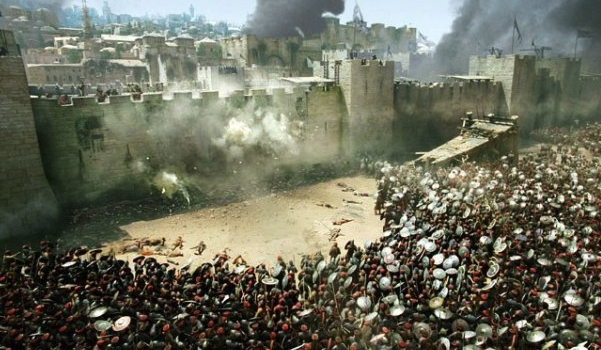Gary responds to several comments from Pastor John MacArthur and Dr. Michael Brown who are pushing back against the preterist interpretation of Bible prophecy.
Much of the debate over preterism comes down to when a document was written. This is especially true for the book of Revelation. If a document was written prior to the destruction of Jerusalem, which occurred in A.D. 70, then any statement about future prophetic events could be a reference to that event. The burden of proof is on the futurist to prove otherwise.
The Didache, also known as “The Teaching of the Twelve Apostles,” is probably the oldest surviving extant piece of non-canonical, extra-biblical literature that the church has available to study. It claims to have been written by the twelve apostles, but this cannot be proved. While a copy of the full text of the Didache was not discovered until 1873, there are references to it in Clement of Alexandria’s Miscellanies, Eusebius’s Ecclesiastical History, and Athanasius’s Festal Letter.
In Didache 16, there are 12 references to Matthew 24–25 (24:4, 10–13, 21, 24, 30, 31, 42, 44, and 25:31). The crucial time text of Matthew 24:34 (“this generation will not pass away”) is not quoted, but a form of Matthew 24:30 is: “The Lord shall come and all His saints with Him. Then shall the world see the Lord coming upon the clouds of heaven” (16.7–8).
John F. MacArthur, whose chapter in The End Times Controversy uses the Didache as a defense for futurism, claims that the “document proves that those who actually lived through the events of A.D. 70 regarded Matthew 24:29–31—and the entire Olivet Discourse—as yet-unfulfilled prophecy.” Nothing in the Didache says anything about “living through the events of A.D. 70.” Nothing in the Didache indicates that the destruction of the temple has taken place.
The verses quoted from Matthew 24–25 in Didache 16 obviously refer to future events from the perspective of the author(s). Of course, if the Didache was written prior to the destruction of Jerusalem in A.D. 70, then preterists have their “shred of evidence” that Ice says does not exist. MacArthur maintains that “most scholars believe it was written near the close of the first century, most likely after A.D. 80.” He does not offer a source for his assertion. The dating of the Didache, like many of these very early documents, is debatable. But there is good reason to place its composition early, prior to the destruction of the temple.

The Early Church and the End of the World
The Early Church and the End of the World asks this fundamental question: What did the earliest of the early Christian writers actually believe about prophetic events? We can only answer this question by actually studying what they wrote. Unfortunately, we do not have a complete record of the period. To make our historical investigation even more difficult, there are translation issues. Many of the works of those who wrote soon after the destruction of Jerusalem in A.D. 70 and beyond remain untranslated. This book seeks to remedy some of these problems.
Buy NowGary responds to several comments from Pastor John MacArthur and Dr. Michael Brown who are pushing back against the preterist interpretation of Bible prophecy. Many Christians are being told that the world getting “worse and worse” is this is what is supposed to happen in the “end times.” This interpretation tends to cause Christians to think that nothing can or even should be done.

